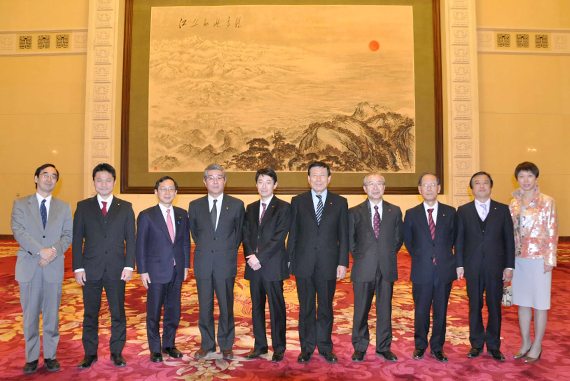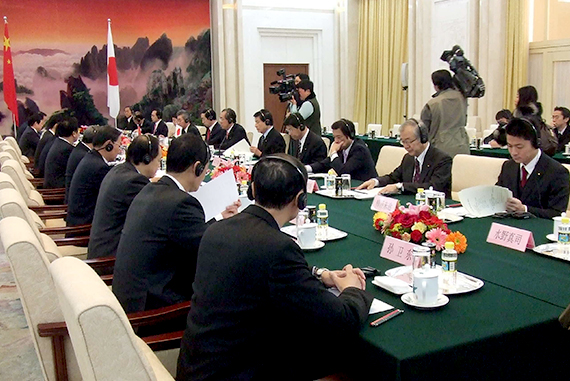
The conflict between the U.S. and China has further escalated in recent years, which seems to be struggle for hegemony.
Prof. KAWASAKI Tsuyoshi of Simon Fraser University insists as follows; "The U.S. represents Western nations which want to maintain the international order of liberalism, and China represents the camps which want to overturn the status quo. After World War II, Western nations led by the U.S. and the U.K. established the international order, where Japan took part in and has obtained security and prosperity for many years. Over 30 years have passed since the end of the Cold War due to the defeat of the Soviet Union, and now the new battle for hegemony has started."(Summary, Nikkei, Inc. February 11, 2020)
Which camp will win, the U.S. or China? The rise of China has surely been impressive. China’s development covers various areas such as foreign affairs, military capability, economy, culture, information technology, cyber and space exploration.
However, China has remained under a one-party Communist regime. People are forced to obey the instruction of the Communist Party and their freedom is only guaranteed within the permissible range of the Communist Party. It can be said that Chinese society doesn’t permit its people to criticize the government or the Communist Party.
New coronavirus infections have spread from the city of Wuhan to the rest of the world. It has been reported that one Chinese medical doctor revealed this infection threat on social media only to have the Wuhan police authority reprimand him for delivering false rumors. He subsequently died due to the coronavirus infection.
This may reveal a weakness of the communist regime. The excessive concentration of power does not necessarily protect people’s lives. Freedom creates diversity and diversity in turn produces innovation. The restriction on freedoms create obstacles for a sound society.
For the time being, China will continue advancing; however, from a long-term perspective, it is uncertain whether China can overtake the U.S.
To date, the U.S. has engaged China in the ways of Western liberalism and capitalism since the “Economic Reform and Market Economy” policies started in 1978. China has succeeded as an industrialized nation and expanded extensive trade with Western nations. This mutual dependence on trade between China and Western nations has deepened. Therefore, President Donald Trump has no choice but to compromise with China by lowering tariffs on Chinese products.
Nevertheless, since the HUAWEI issue occurred, the U.S. has managed to purge Chinese firms in the arenas of high technology and security. On the other hand, China has absolutely no intention in conceding to Taiwan and matters regarding the South China Sea.
Japan associates itself with Western nations, but the mutual dependence on economy between Japan and China has been intertwined. Therefore, even if conflicts between the U.S. and China intensify, Japan will need to ease tensions between each country. Japan has extended an invitation to Xi Jinping as a state guest in April; however, this will depend on circumstances of the coronavirus epidemic.
In the near future, the population of China will rapidly decline due to their one-child policy and will face a serious aging society. Given these comprehensive circumstances, China will also need to harmonize with the U.S. and Western nations.
